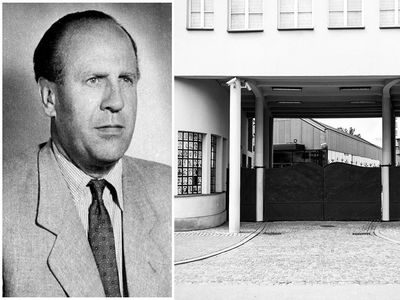Search Results
Rivers
Please select your preferred river
Rivers
Idyllic River Cruises
From the spectacular Danube to the majestic Rhine, discover the stunning rivers and waterways of Europe with our brilliant range of river cruises. Featuring fantastic ports of call, hop on board a comfortable and elegant ship and watch the incredible, ever-changing landscapes pass you by.
Cruise Ships
Please select your preferred cruise ship
Ships
Railways
Please select your preferred railway experience
Railways
Remarkable Train Journeys
With our fantastic range of rail holidays, you’re guaranteed a truly unforgettable experience. Discover breathtaking views from the iconic Glacier Express and the Mont Blanc Express, or enjoy idyllic journeys on nostalgic railway lines. From the Spanish Pyrenees to the Italian countryside, see more with our fully escorted tours.
Travel Options
Select your travel option from below
Outbound & Inbound Travel
Search using your town name below or select using the departure points list
Leicester Birmingham Rainham South Mimms Services Preston Wetherby Services Bedford Newcastle upon Tyne York Bolton Huddersfield Colchester Leeds Manchester Milton Keynes Sunderland Newcastle under Lyme Sandbach Services Bury Chester Basildon Bradford Coventry Northampton Stockton Darlington Lichfield Southend Stockport Blackburn Durham Halifax Harrogate Hilton Park Services Rayleigh Rochdale Sutton Coldfield Wakefield Ashton Under Lyne Birkenhead Blackpool Hartlepool Keighley Liverpool Selby Warrington Wrexham Scarborough St Helens Wigan Dewsbury Frankley Services Runcorn Southport Wolverhampton Brentwood Prescot Southampton Widnes Lancaster Macclesfield Oldham Prestatyn Reading Rugby Watford Basingstoke Burnley Chieveley Services Cleveleys Luton Northallerton Nuneaton Thirsk Chorley Colwyn Bay Havant Portsmouth Rhyl Rotherham Accrington Sale Solihull Wallasey Abergele Altrincham Banbury Crewe Dartford Llandudno Junction London Victoria Middlesbrough Stafford Bishop Auckland Bristol Knaresborough Leigh Romford Warwick Exeter Formby Gateshead Nantwich Pontefract Tamworth Fareham Hemel Hempstead Letchworth Washington Bootle Bridgwater Cheadle Chester Le Street Hoddesdon Bournemouth Cheltenham Hatfield Ripon Stevenage Taunton Cardiff Loughton Newton Aycliffe Pickering Ringwood Cheshunt Guildford Welwyn Garden City West Bromwich Bracknell Dudley Gloucester Newport Eastleigh Cardiff West Services Worcester Staines Camberley High Wycombe Newton Abbot Orpington Uxbridge Chesterfield Doncaster Farnborough Maidenhead Maidstone Weston Super Mare Aldershot Bexleyheath Bromley Christchurch Lincoln Sedgemoor Services Swansea Hereford Redhill Derby Gordano Services Kidderminster Slough Totton Woking Chatham Croydon Gravesend Paignton Barnsley Leicester Forest East Services Ross on Wye Bridgend Bromsgrove Redditch Stroud Sutton Torquay Leatherhead Norwich Twickenham Hounslow Sheffield Stop 24 Services Stourbridge Nottingham Shipley Woodall Services Worksop Hinckley Lymm Services Mansfield Oxford Stratford Upon Avon Northwich Leyland Chester Services Knutsford Services Beaconsfield Coalville Congleton Maidstone Services Walsall Brighouse Clacton On Sea Pudsey Rawtenstall Watford Gap Services Ashby De La Zouch Enfield Morecambe Mold Clacket Lane Services Epping Fleet Llangefni Ashford Dunstable Ware Witham Hertford Grays Peterborough Services Uttoxeter Plymouth Medway Pavilion Services Halesowen Pontypridd Cambridge Cobham Services Llanelli Neath Hopwood Park Services Wimborne Minster Burton Upon Trent Carmarthen Caterham Shrewsbury Donington Park Services Ipswich Winchester Services Cwmbran Hull Port Talbot Chepstow Gillingham Kings Lynn Telford Bognor Regis Chelmsford Ferrybridge Poole Scunthorpe Yeovil Boston Old Swan Brighton Stamford Attleborough Crawley Eastbourne Ely Bury St Edmunds Huntingdon Salisbury Stowmarket Cardiff Gate Services Market Harborough Newbury Spalding Worthing March Blackpool Airport Chichester Mexborough Thetford Alfreton Bamber Bridge Beverley Cleethorpes Doncaster Services Driffield Dronfield Ellesmere Port Harlow Kidlington Chippenham Gainsborough Ormskirk Retford Wythenshawe Abingdon Bath Cirencester Long Eaton Maghull Newmarket Sleaford St Neots Belper Diss Wymondham Lowestoft Soham Urmston Bridlington Crosby Eccles Heanor Didcot Epsom Kingston upon Thames Leeming Bar Services Litherland Spennymoor Sutton in Ashfield Barnet Kettering Magor Services Malton Nelson Kirkby Loughborough Cosham Surbiton Swadlincote Wellingborough Garforth Rickmansworth Leighton Buzzard Northampton Services Cullompton Services Thurrock Services Birchanger Green Services Leigh Delamere Services Blyth Services Hastings Pease Pottage Services St Albans Dover Kendal Scotch Corner Warwick Services Grantham Services Swindon Canterbury Hythe Louth Carlisle Flitwick Folkestone Trowbridge Bexhill on Sea Castleford Eltham Ludlow Brigg Cramlington Devizes Moreton Peterborough Rugby Services Skegness Tunbridge Wells Witney Bourne Broadstairs Deal Haverhill Kidsgrove Margate Rushden Seaford Ashton-in-Makerfield Dorchester Guisborough Herne Bay Hove Lancaster Services Leek Lewes Littlehampton Penrith Ramsgate Swinton Whitstable Aylesbury Chingford Mount Hanley Holywell Hucknall Strood Bangor Barrow in Furness Burgess Hill Catford Cleckheaton Corley Services Gorleston Hornchurch Hunts Cross Royal Leamington Spa Sandbach Shirley Tonbridge Aintree Allerton Andover Beckenham Biggleswade Billingham Bromborough Cannock Castle Bromwich Grimsby Ilkeston Larkfield Romsey Severn View Services Skipton Walkden Walton on Thames Weymouth Winsford Atherton Dagenham Felixstowe Filey Horsham Queensferry Royston South Shields Warndon Westhoughton Atherstone Bearwood Bletchley Braintree Caerphilly East Grinstead Gosport Haywards Heath Leominster Melton Mowbray Redbridge Sheerness Walton Warminster Wellington Bedworth Beeston Carshalton Dorking East Dereham Goole Hessle Ilford Kingstanding Malvern Middleton Northfield Northwood Hills Pontypool Sittingbourne Stone Stratford Swanley Ulverston Abergavenny Aldridge Arnold Chapeltown Charnock Richard Services Chesham Clay Cross Denton FAVERSHAM Fleetwood Golders Green Halstead Horncastle Oswestry Rochester Sevenoaks Sudbury Barry Billericay Birchington Borehamwood Calne Corby Dalton in Furness Dawlish Ealing Frome Hailsham Huyton Illminster Kings Heath Membury Services Oakham Peterlee Potters Bar Ripley Sidmouth Stourport Tiverton Towcester Waterlooville West Cliff On Sea Amersham Barking Beccles Bulwell Chertsey Corringham Cottingham Cradley Heath Downend Farnworth Fordsham Godalming Great Barr Great Yarmouth Harpenden Harrow Hitchin Kenilworth Lutterworth Morley Rugeley Ruislip Sheldon Tadcaster Tring Upminster Waltham Abbey Whitley Bay Winchester Wisbech Bispham Gorseinon Carnforth Hyde Barnstaple Heathrow Airport Toddington Services Heckmondwike Skelmersdale Gosforth New Malden Manchester Airport Downham Market Dereham Grantham Oxford Peartree Services Plymouth Ferry Terminal / Plymouth Holyhead Bristol Airport Edinburgh Airport Stansted Airport Tibshelf Services Woolley Edge Services Newcastle Airport Gatwick Airport Keele Services Birch Services Boreham Services Birmingham International Airport Luton Airport Newcastle Terminal Connah's Quay Flint Leeds - Skelton Lake Services Llandudno Hartshead Moor Services Kettering Services Trowell Services Strensham Services Yeadon Bingley Burley in Wharfdale Cross Hills Elland Horsforth Ilkley Immingham Menston Michaelwood Services Moortown Newport Pagnell Services Washington Services Camborne Cornwall Services Ilminster Join at Port London Gateway Services Lytham Merthyr Tydfil Milton Keynes Centre Oldbury WhitbyHoliday Type
Please select multiple holiday types
Popular Holidays
Seasonal Holidays
Special Interest Holidays
Search using your town name below or select using the departure points list
Leicester Birmingham Rainham South Mimms Services Preston Wetherby Services Bedford Newcastle upon Tyne York Bolton Huddersfield Colchester Leeds Manchester Milton Keynes Sunderland Newcastle under Lyme Sandbach Services Bury Chester Basildon Bradford Coventry Northampton Stockton Darlington Lichfield Southend Stockport Blackburn Durham Halifax Harrogate Hilton Park Services Rayleigh Rochdale Sutton Coldfield Wakefield Ashton Under Lyne Birkenhead Blackpool Hartlepool Keighley Liverpool Selby Warrington Wrexham Scarborough St Helens Wigan Dewsbury Frankley Services Runcorn Southport Wolverhampton Brentwood Prescot Southampton Widnes Lancaster Macclesfield Oldham Prestatyn Reading Rugby Watford Basingstoke Burnley Chieveley Services Cleveleys Luton Northallerton Nuneaton Thirsk Chorley Colwyn Bay Havant Portsmouth Rhyl Rotherham Accrington Sale Solihull Wallasey Abergele Altrincham Banbury Crewe Dartford Llandudno Junction London Victoria Middlesbrough Stafford Bishop Auckland Bristol Knaresborough Leigh Romford Warwick Exeter Formby Gateshead Nantwich Pontefract Tamworth Fareham Hemel Hempstead Letchworth Washington Bootle Bridgwater Cheadle Chester Le Street Hoddesdon Bournemouth Cheltenham Hatfield Ripon Stevenage Taunton Cardiff Loughton Newton Aycliffe Pickering Ringwood Cheshunt Guildford Welwyn Garden City West Bromwich Bracknell Dudley Gloucester Newport Eastleigh Cardiff West Services Worcester Staines Camberley High Wycombe Newton Abbot Orpington Uxbridge Chesterfield Doncaster Farnborough Maidenhead Maidstone Weston Super Mare Aldershot Bexleyheath Bromley Christchurch Lincoln Sedgemoor Services Swansea Hereford Redhill Derby Gordano Services Kidderminster Slough Totton Woking Chatham Croydon Gravesend Paignton Barnsley Leicester Forest East Services Ross on Wye Bridgend Bromsgrove Redditch Stroud Sutton Torquay Leatherhead Norwich Twickenham Hounslow Sheffield Stop 24 Services Stourbridge Nottingham Shipley Woodall Services Worksop Hinckley Lymm Services Mansfield Oxford Stratford Upon Avon Northwich Leyland Chester Services Knutsford Services Beaconsfield Coalville Congleton Maidstone Services Walsall Brighouse Clacton On Sea Pudsey Rawtenstall Watford Gap Services Ashby De La Zouch Enfield Morecambe Mold Clacket Lane Services Epping Fleet Llangefni Ashford Dunstable Ware Witham Hertford Grays Peterborough Services Uttoxeter Plymouth Medway Pavilion Services Halesowen Pontypridd Cambridge Cobham Services Llanelli Neath Hopwood Park Services Wimborne Minster Burton Upon Trent Carmarthen Caterham Shrewsbury Donington Park Services Ipswich Winchester Services Cwmbran Hull Port Talbot Chepstow Gillingham Kings Lynn Telford Bognor Regis Chelmsford Ferrybridge Poole Scunthorpe Yeovil Boston Old Swan Brighton Stamford Attleborough Crawley Eastbourne Ely Bury St Edmunds Huntingdon Salisbury Stowmarket Cardiff Gate Services Market Harborough Newbury Spalding Worthing March Blackpool Airport Chichester Mexborough Thetford Alfreton Bamber Bridge Beverley Cleethorpes Doncaster Services Driffield Dronfield Ellesmere Port Harlow Kidlington Chippenham Gainsborough Ormskirk Retford Wythenshawe Abingdon Bath Cirencester Long Eaton Maghull Newmarket Sleaford St Neots Belper Diss Wymondham Lowestoft Soham Urmston Bridlington Crosby Eccles Heanor Didcot Epsom Kingston upon Thames Leeming Bar Services Litherland Spennymoor Sutton in Ashfield Barnet Kettering Magor Services Malton Nelson Kirkby Loughborough Cosham Surbiton Swadlincote Wellingborough Garforth Rickmansworth Leighton Buzzard Northampton Services Cullompton Services Thurrock Services Birchanger Green Services Leigh Delamere Services Blyth Services Hastings Pease Pottage Services St Albans Dover Kendal Scotch Corner Warwick Services Grantham Services Swindon Canterbury Hythe Louth Carlisle Flitwick Folkestone Trowbridge Bexhill on Sea Castleford Eltham Ludlow Brigg Cramlington Devizes Moreton Peterborough Rugby Services Skegness Tunbridge Wells Witney Bourne Broadstairs Deal Haverhill Kidsgrove Margate Rushden Seaford Ashton-in-Makerfield Dorchester Guisborough Herne Bay Hove Lancaster Services Leek Lewes Littlehampton Penrith Ramsgate Swinton Whitstable Aylesbury Chingford Mount Hanley Holywell Hucknall Strood Bangor Barrow in Furness Burgess Hill Catford Cleckheaton Corley Services Gorleston Hornchurch Hunts Cross Royal Leamington Spa Sandbach Shirley Tonbridge Aintree Allerton Andover Beckenham Biggleswade Billingham Bromborough Cannock Castle Bromwich Grimsby Ilkeston Larkfield Romsey Severn View Services Skipton Walkden Walton on Thames Weymouth Winsford Atherton Dagenham Felixstowe Filey Horsham Queensferry Royston South Shields Warndon Westhoughton Atherstone Bearwood Bletchley Braintree Caerphilly East Grinstead Gosport Haywards Heath Leominster Melton Mowbray Redbridge Sheerness Walton Warminster Wellington Bedworth Beeston Carshalton Dorking East Dereham Goole Hessle Ilford Kingstanding Malvern Middleton Northfield Northwood Hills Pontypool Sittingbourne Stone Stratford Swanley Ulverston Abergavenny Aldridge Arnold Chapeltown Charnock Richard Services Chesham Clay Cross Denton FAVERSHAM Fleetwood Golders Green Halstead Horncastle Oswestry Rochester Sevenoaks Sudbury Barry Billericay Birchington Borehamwood Calne Corby Dalton in Furness Dawlish Ealing Frome Hailsham Huyton Illminster Kings Heath Membury Services Oakham Peterlee Potters Bar Ripley Sidmouth Stourport Tiverton Towcester Waterlooville West Cliff On Sea Amersham Barking Beccles Bulwell Chertsey Corringham Cottingham Cradley Heath Downend Farnworth Fordsham Godalming Great Barr Great Yarmouth Harpenden Harrow Hitchin Kenilworth Lutterworth Morley Rugeley Ruislip Sheldon Tadcaster Tring Upminster Waltham Abbey Whitley Bay Winchester Wisbech Bispham Gorseinon Carnforth Hyde Barnstaple Heathrow Airport Toddington Services Heckmondwike Skelmersdale Gosforth New Malden Manchester Airport Downham Market Dereham Grantham Oxford Peartree Services Plymouth Ferry Terminal / Plymouth Holyhead Bristol Airport Edinburgh Airport Stansted Airport Tibshelf Services Woolley Edge Services Newcastle Airport Gatwick Airport Keele Services Birch Services Boreham Services Birmingham International Airport Luton Airport Newcastle Terminal Connah's Quay Flint Leeds - Skelton Lake Services Llandudno Hartshead Moor Services Kettering Services Trowell Services Strensham Services Yeadon Bingley Burley in Wharfdale Cross Hills Elland Horsforth Ilkley Immingham Menston Michaelwood Services Moortown Newport Pagnell Services Washington Services Camborne Cornwall Services Ilminster Join at Port London Gateway Services Lytham Merthyr Tydfil Milton Keynes Centre Oldbury WhitbyDeparture Date
When would you like your holiday to begin?
Calendar Key
Select Departure Month(s)
How flexible are you?
Duration
Select how long you wish to go on holiday for
Duration Key
*Duration may not be available depending on your current search criteria
Coach Type
Select one or more coach types

Luxuria: The equivalent of business class, state-of-the-art Luxuria is the ultimate way to travel.
- Deluxe, armchair-style seats
- Every seat has its own, fully interactive, touch-screen T.V.
- Selection of double and single seats
- Servery on board
- Climate control
- Plug sockets and USB points

Siver Service: Elegant and stylish, Silver Service offers added comfort and fantastic facilities.
- Specially designed reclining seats
- Spacious rear lounge
- Onboard entertainment and satellite navigation system
- Free personal headphones
- Personal tables

Executive: Executive coaches are modern and comfortable, ensuring a relaxing journey.
- Air-conditioning
- Reclining seats
- Servery on board
- Onboard toilet
Price/Budget
Please select price by Passenger or Total and your preferred budget
Use the pricing tool below:
You have selected £0 - £10000 per person
Use the pricing tool below:
You have selected £0 - £30000 per person
Passengers
Enter the number of adults
Your Drivers
Please select which drivers you would like to travel with.



Find a single
room in seconds!
Looking for a holiday with single room availability? Now it's quick and easy to find exactly what you need!

GP90: The Great Pilgrimage & Leger Holidays
In August 2018, thousands of members and representatives helped The Royal British Legion recreate the 1928 Battlefiel...

A Personal Account of Visiting Battlefields in the Centenary Year: Part One
Paul Prendergast is a valued customer of ours who recently embarked on a personally significant Battlefields tour to...

Seen it Live: Formula 1 Spanish Grand Prix
The end of the Formula 1 season may be upon us as the countdown to Abu Dhabi is underway, but it doesn't mean we can'...

Mostar: where its quite normal to see someone jumping off a bridge!
I wasn't sure what to expect from the city of Mostar; all I knew about it was the trouble in the early '90s.

Grand Explorer: Delights of the Costa Blanca, Valencia, Burgos & Cuenca
Our 2015 brochure has introduced some fantastic new tours for 2015, including Our Grand Explorer tour, Delights of th...

David McCormack: Playboy, businessman, saviour, spy: Oskar Schindler's lesser known career with German Military Intelligence 1936-40
Oskar Schindler's name became known to millions following Liam Neeson's brilliant 1993 on-screen performance as the l...

Uncover a deeper understanding of Flanders Fields
The small city of Ypres in Flanders was once the center of the European cloth trade.

Journeys End: The Dugout Experience
With the JOURNEY'S END film released this year, there now comes a rare chance to see it LIVE on the very battlefields...

Florence: artistic treasures, amazing architecture and a rapidly-melting
The final city visit on our tour of the Italian Riviera, Tuscany, and Rome was the Renaissance city of Florence, a ci...

River Cruise vs Sea Cruise: What Floats Your Boat?
Looking to dip your toe into cruising? We know, there's so much to choose from.

The 5 Best Travel Apps for your iOS Device
Just a few short years ago, holidaymakers' suitcases were packed with everything from CD players to cameras and books...

2017 Battlefield Anniversary Timeline - WWI
2017 marks the penultimate centenary year of the end of World War One.

Susies Amazing Grand Explorer Adventure
Sue Clark, one of our customers, has recently returned from her holiday with Leger Holidays.
We offer flexible payment options
Once you have booked your tour either online, or by telephone 01709 787 463 , you have the flexibility of how you pay off the remainder of your balance. You can:
- Use our balance payment facility online to make and track your card payments. You can pay as much as you want up until your final due date or pay it all, the choice is yours.
- Send payments via online banking.
- Send payments via cheque.
- Call us and make a card payment, either a small amount or as lump sum until your final due date.
Our contact and online banking payment details will be on your confirmation invoice to remind you of your choices.








